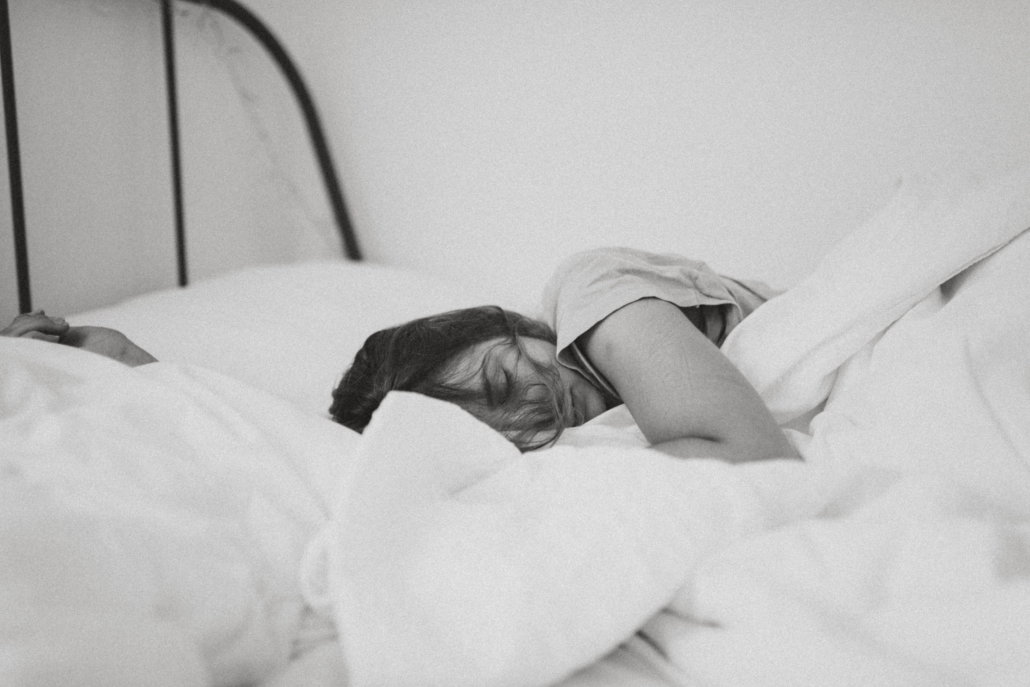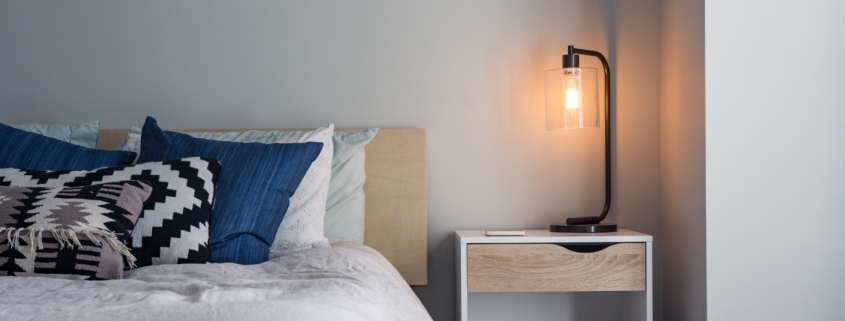How Sleep Routines Affect Overall Health & Work Performance
We all know that sleep is an important part of our lives. We’re told to get 8 hours a day if possible, but we never really discuss what happens to us with a lack of sleep. Sleep deprivation not only affects your psychological state, but your mental health as well. Not to mention, those who already have mental health problems are more likely to suffer from sleeping disorders as well as insomnia.
In this blog post, we’ll discuss how sleep routines affect mental health and work performance. We’ll finish it by discussing three easy ways to better your sleep to help better your performance at the office.
How many hours of sleep do you need?
As we mentioned, we’re told to get around 7-8 hours of sleep a day. But the average person is getting about 5-6 hours. Whether it’s because of the excessive use of technology throughout the day and into the evenings, or the busyness of the day and not being able to shut off, or all the extra stress related to this recent pandemic, people are simply not sleeping enough.

Sleep is an essential function that allows your body and mind to recharge, leaving you feeling refreshed and alert when you wake up. Healthy sleep routines help the body remain healthy and stave off diseases. Without the necessary amount of sleep, your brain is simply unable to function properly. Lack of sleep is linked to a number of health consequences including heart disease, type 2 diabetes and depression.
How sleep affects mental health
Research suggests the relationship between sleep and mental health is quite the complex one. While sleep has always been known to be a consequence of psychiatric conditions, more recent research suggests that sleep plays a causal role in the development and continuation of different mental health problems.
Depression
Insomnia and other sleep problems are common symptoms of depression. Research has implicated that lack of sleep is actually causing depression now.
According to verywellmind, one analysis of 21 different studies found that people who experience insomnia have a two-fold risk of developing depression over those who do not have trouble sleeping.
Stress
If you’re struggling to get through the day after a night where you couldn’t sleep, you are well-acquainted with the effects of sleep deprivation. Mood swings, irritability and anger can make it that much harder to cope with the minor stresses of your daily life both inside and out of the office.
These minor stresses turn into full-blown sources of frustrations that lead to changes in relationships, work environments and self-esteem.
Anxiety
Those who experience anxiety tend to have a harder time sleeping. And those who can’t sleep seem to create anxiety within their minds when they’re lying awake at night thinking about sleeping and not being able to. Sleep problems appear to be a risk factor for developing different anxiety disorders. One study found that problems with sleep were a predictor for generalized anxiety disorder in children and teens between the ages of 9 and 16.
Those who struggle with sleep problems may be more likely to develop an anxiety condition, particularly if their sleep problems are prolonged and left untreated into their adult lives.
How does this affect work?
To create the best possible work at the office, you must be in a good headspace. We’ve all been there when we’ve had a bad sleep, have a lot going on in our personal lives and then come into work feeling flat and defeated. Nothing good ever comes out of those days!
When you’re not able to sleep and refresh your mind, your work itself is going to be affected, but your work environment and co-workers will also be too.
As a manager or boss of your company, it’s important to pay attention to your employees. If they’re lagging and look exhausted, speak with them. If they’re having trouble sleeping at home, their quality of work is going to suffer. There are many things that can help put a person’s sleep routine back on track once it’s spoken about.

Top three things to better your sleep routine
Here’s the thing, there are so many things you can do to help your sleep routine which will, in turn, help you be your best self for work, for your family and for your overall happiness. Here are a few suggestions on where to start:
- Turn your phone off after 8pm. No technology evenings will help your body and mind ease into the slowness of evenings. It’s important to have a real alarm clock to help you get up in the morning. Don’t look at your phone as soon as you wake up either. That’s going to set you up for an anxiety-induced day. Go into your evenings slowly without tech and wake up slowly without tech.
“The pineal gland of the brain is responsible for the rhythmic production of melatonin that can only occur during darkness.
The use of artificial light from smart phones, iPads and eBooks all interfere with natural melatonin production for up to two hours after they are turned off”, explains Naturopathic Doctor Emina Jasarevic from Mind Body Soul Integrative Clinic.
- Speak to someone if you’re struggling. There are so many great resources, tips and trainers that can help with your sleep routine. Sleep should come easy. Did you know that seeing a sleep therapist is covered under BC Medical if you have a Doctor’s referral?
- Exercise. The last thing you may want to do is exercise if you’re feeling tired, but it will help wake you up! Exercising in the morning will help improve your mental health state by reducing anxiety, depression and stress. It also improves self-esteem and cognitive function. Waking up and exercising before going to work will not only make you more creative at work, but it will make you happier and in a better mood!
Interested in learning more?
At Navy & Sage, we’re more than just benefits advisors. If you or your team members are having trouble when it comes to sleep, mental health and work performance, reach out to us today. We’d be happy to help your team get on track to creating the best possible office for everyone.






